Brothers Extract Gold & Silver From E-Waste, Save 100000 Metric Tonnes Of Carbon
Nitin and Rohan Gupta launched Attero Recycling in 2007, and use a mix of mechanical and hydrometallurgical technologies to extract 98% metals like gold and silver from e-waste. On International E-Waste Day, we take a look at how these brothers are tackling the e-waste tsunami in an eco-friendly and sustainable way.
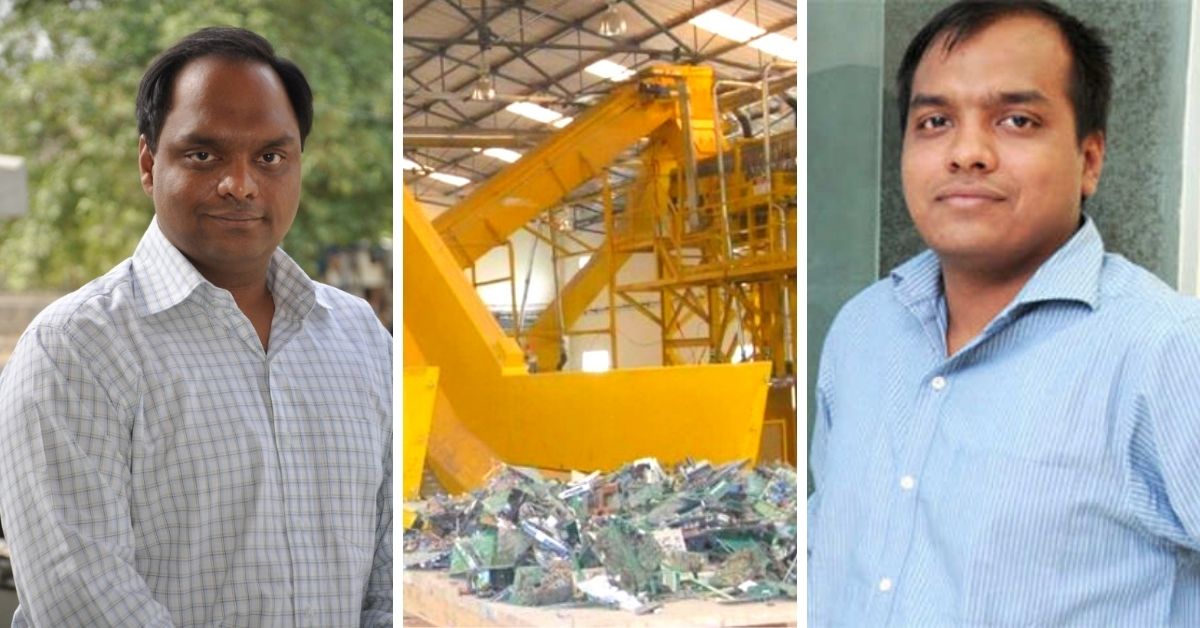
A common phrase says ‘curiosity killed the cat’, but in the case of brothers Rohan and Nitin Gupta, it did quite the opposite. Here, curiosity led to a life-changing development, which further snowballed into a premium e-waste company, Attero Recycling.
In the year 2007, Nitin and Rohan were looking for an electronic waste (e-waste) recycler to discard an old laptop. Unable to find one, the duo began Googling safe ways to dispose of the laptop.
However, they failed to find an effective solution that didn’t incinerate or burn the waste. Could there be other options available?

A few months of research into this led to the co-founding of Attero Recycling to provide end-to-end recycling solutions to electronic scrap such as television sets, computer monitors, printers, scanners, keyboards, mice, cables, circuit boards, lamps, calculators, phones, answering machines, DVDs, etc.
Nitin, a B-tech degree holder from IIT-D and an alumnus of NYU’s Stern School of Business and Rohan, a BE graduate in Chemical engineering from REC Jaipur, channelised their expertise into developing a unique recycling process, which is a mix of mechanical and hydrometallurgical technologies that can extract 98% of metals from e-waste. They do this while ensuring low carbon dioxide emissions. The recovered metals include gold, silver, copper, tin, aluminium lithium, cobalt, manganese and nickel.
Predicting the e-waste ‘tsunami’
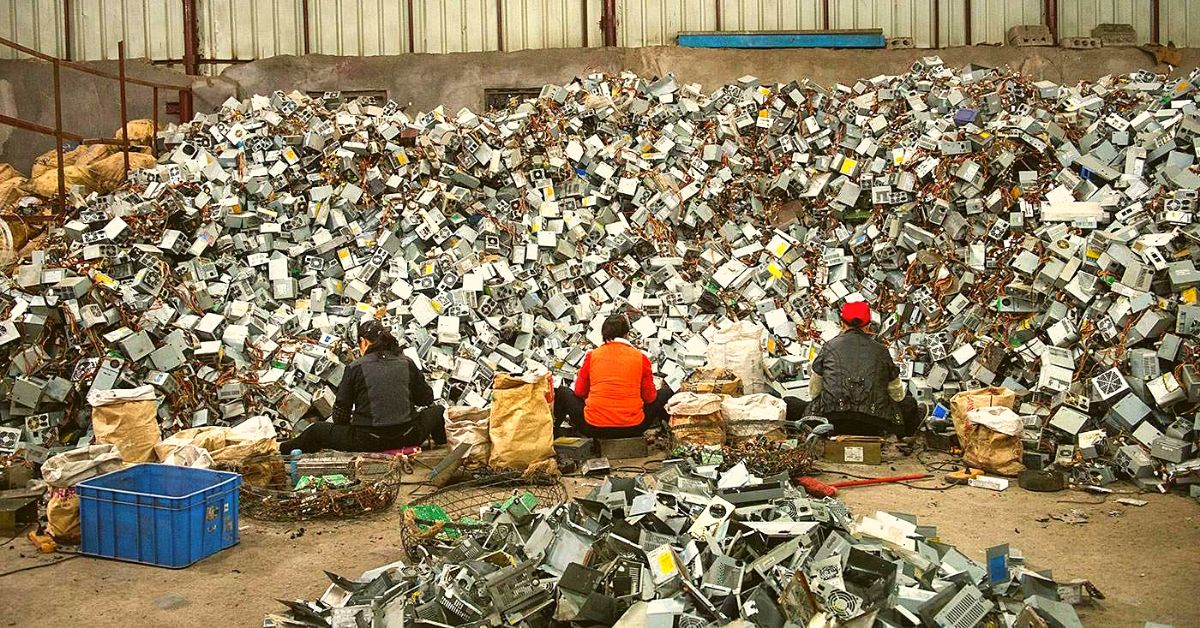
With 48.5 million tonnes of e-waste generated across the world till 2018, the United Nations warned of an e-waste tsunami that is likely to come if stern measures are not taken to tackle the waste stream.
At present, only 20% of it is globally recycled.
To put things into perspective, the report said, “Imagine the mass of 125,000 jumbo jets — it would take London’s Heathrow Airport up to six months to clear that many aircraft from its runaways. If you find it difficult to envisage, then try the mass of 4,500 Eiffel Towers, jam them all in one space, side by side, and they would cover an area the size of Manhattan.”
When light is shed on India’s recycling capacity, the picture is not too hopeful either. We recycle only 2% of waste electronics, and that too, not in a very effective manner.
Players in the informal sector either burn the plastics to extract metals, incinerate or acid leach in dangerous conditions.
The recovery rate of metals is dismal, which is ironic given that e-waste is valued at $62.5 billion annually, which is three times higher than the output of all the world’s silver mines, the same UN report underlines.
While this report is fairly new, Nitin had predicted the massive increase in e-waste and its subsequent worth way back in 2010. He had told the Economic Times that e-waste is a billion dollar opportunity and that by 2021, India will produce one million tonnes of e-waste.
With this research and development, the brothers have been able to raise a total of $20 million in funding over four rounds from institutional backers such as Draper Fisher Jurvetson, Granite Hill India Opportunity Ventures, Kalaari Capital, Forum Synergies and International Finance Corporation.
Bringing an end-to-end solution
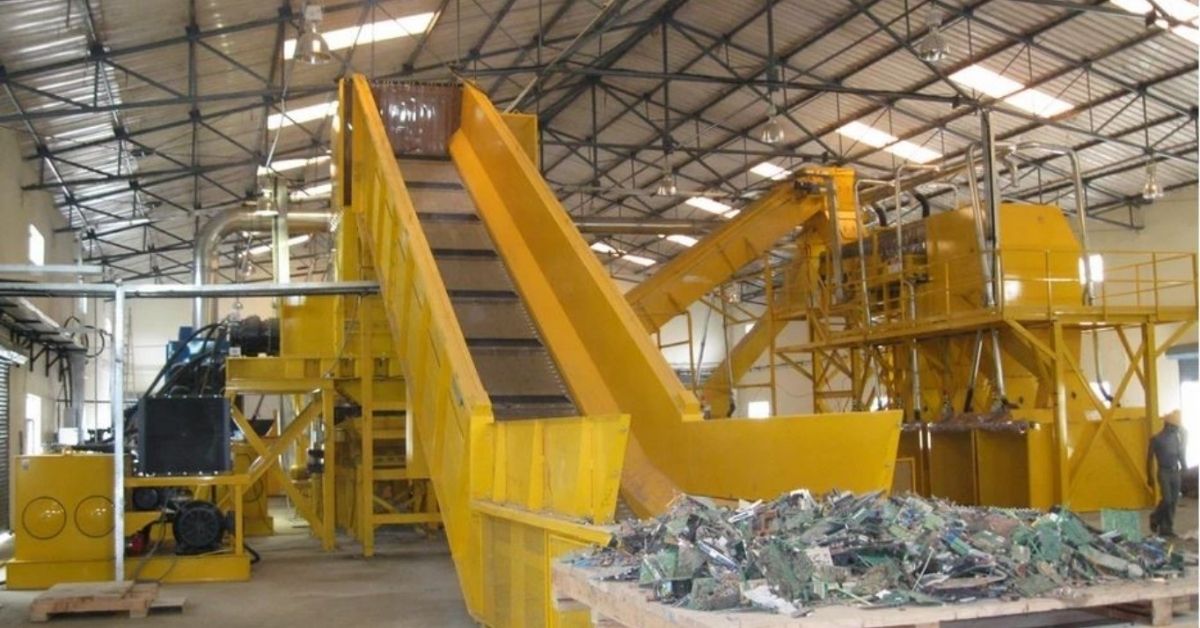
Attero has a dual model, one where they purchase the waste and other where they get paid. The company has an impressive clientele including Samsung, Acer, LG, Whirlpool, Godrej, Flextronics, Vivo, Oppo, Reliance Jio, MG Motors, and Maruti Suzuki.
The company also claims to be the only one to recycle Li-ion batteries irrespective of size, shape and chemistry in an environmentally friendly manner. Currently, at their Roorkee facility, they recycle close to a thousand tonnes of Li-Ion Batteries every year
“No other recycler in India has the capability to process Li-Ion batteries, as they often dismantle, sell or export the black mass,” adds Nitin.
From a CFL bulb to industrial equipment, the company recycles more than 20 types of e-wastes in its facility that has capacity to treat 1,44,000 tonnes of waste annually.
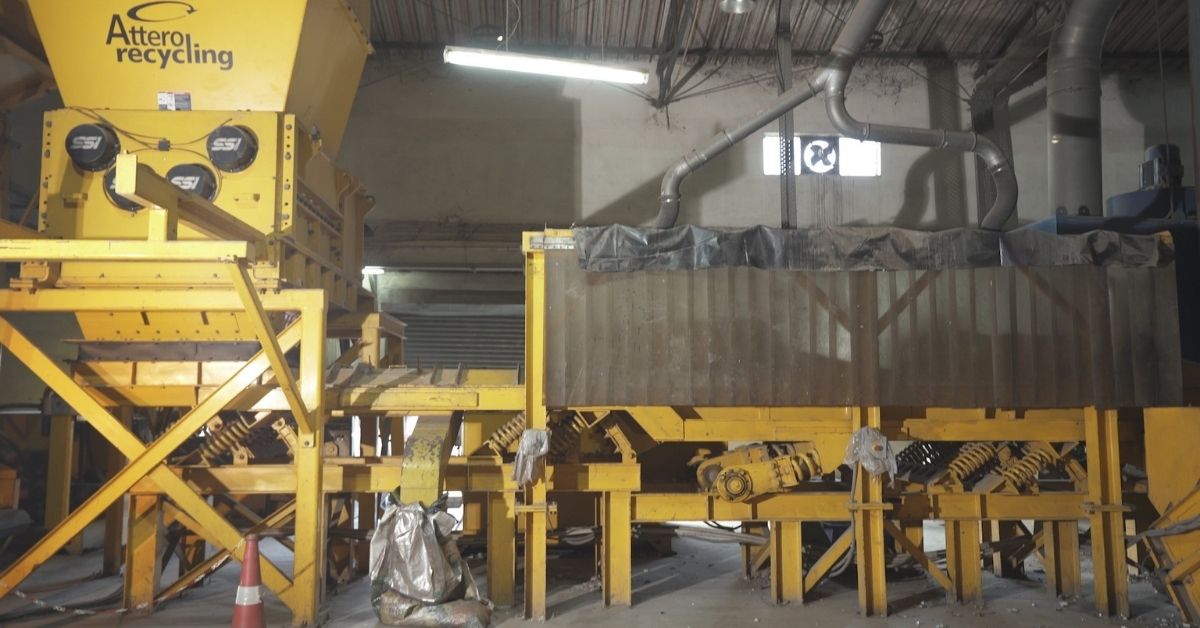
Achieving this feat was not easy, especially considering that in the 2010s, the term ‘e-waste’ recycling hadn’t penetrated the country.
“When we started, the market had little awareness, let alone a strategy for effective disposal of e-waste. Many times, things like old phones and laptops were carelessly dumped in the open or sold off to the scrap dealers who in turn resorted to crude and highly unsafe methods for recycling, resulting in severe health and environmental hazards,” recalls Nitin.
So how did Attero make its way into a structural market that barely even existed?
To begin with, a robust and regulated e-waste regime was designed that offered everything — from pick-up to collection, tracking of electronic assets, reverse logistics management, electronics asset recovery, data security, refurbishment, e-waste recycling and disposal all over India.
Next, they tied up with government-registered e-waste recyclers, who did not have an advanced technology to process the e-waste and extract every ounce of metal.
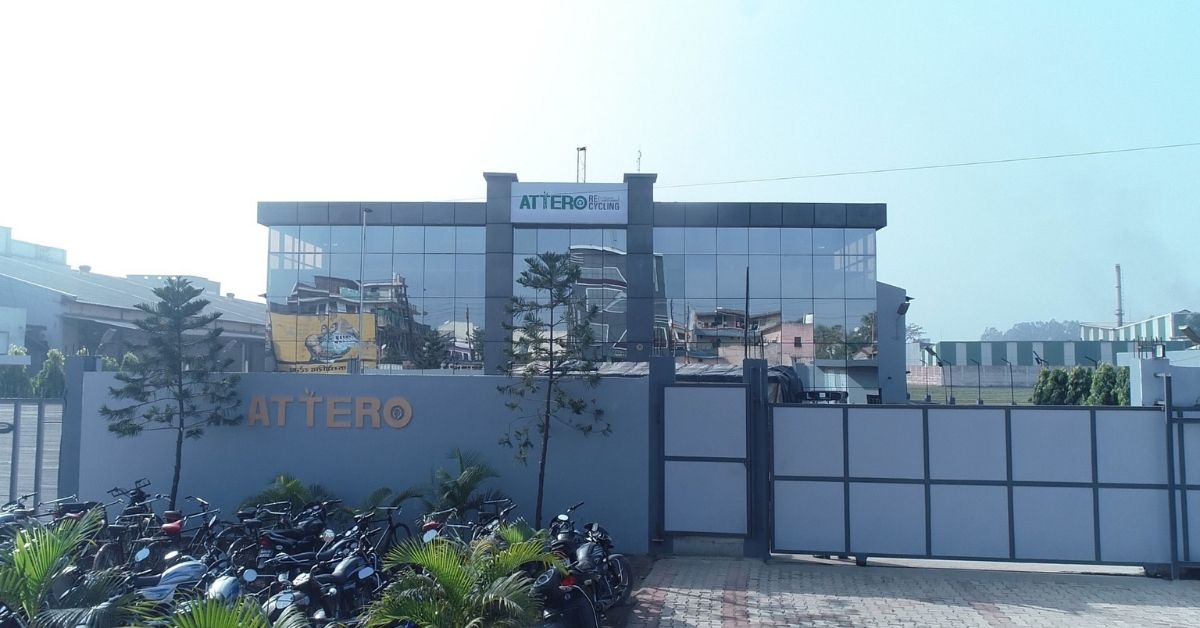
The company adopts methods like Printed Circuit Board (PCB) recycling that involves recovery of copper, silver and gold from printed circuit boards, tin from tin/lead solder dross, Catalytic Converters to extract platinum, palladium and rare earths like Neodymium for magnets. All the recycled metals are sold at market prices.
“Of the 300 patents applied for, we have been granted 27 global patents. We have made, and continue to make, significant investments in capex and R&D,” he says.
Another factor that may have got Attero more brownie points are the on-site visits. The clients are encouraged to visit the plant and conduct a detailed environmental and technical evaluation before entering an agreement. Nitin says that they have not only retained all their clients, but have also added new ones every month.
The company has been at the forefront when it comes to calculating the carbon credits generated per tonne of recycled electronic waste.
“UNFCCC (United Nations Framework Convention on Climate Change), the body of the United Nations, looked at our processes and agreed that the amount of energy required to extract one gram of copper materials from Attero’s process is significantly lower, as opposed to extracting the same gram of copper from a virgin mine, or any other known secondary sources. We have saved more than 1,00,000 metric tonnes of carbon so far,” says Nitin.
If today Attero can proudly claim to have a growth rate of 150% year on year, it is because various factors realised their roles.
“The awareness regarding e-waste disposal has grown exponentially in the last few years. Additionally, the implementation of extended producer responsibility (EPR) regulations has helped the industry grow. At present, 30 products are covered under the EPR regime. This number is expected to increase to 700 products within a year,” says Nitin.
The Gupta brothers are in the process of scaling their operations by 30,000 tonnes through setting up six franchises in various states of the country by the end of 2021.
“Our environment is a collective responsibility. We should all do our bit to preserve it and adopt sustainable measures. Let’s pledge to keep our environment and society clean and ensure that our e-waste is recycled in a scientific manner,” he adds.
You can reach Attero here
Edited by Divya Sethu
If you found our stories insightful, informative, or even just enjoyable, we invite you to consider making a voluntary payment to support the work we do at The Better India. Your contribution helps us continue producing quality content that educates, inspires, and drives positive change.
Choose one of the payment options below for your contribution-
By paying for the stories you value, you directly contribute to sustaining our efforts focused on making a difference in the world. Together, let’s ensure that impactful stories continue to be told and shared, enriching lives and communities alike.
Thank you for your support. Here are some frequently asked questions you might find helpful to know why you are contributing?


This story made me
-
97
-
121
-
89
-
167











